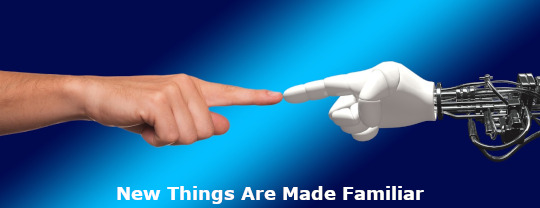Samuel Johnson? William Makepeace Thackeray? Anonymous?

Question for Quote Investigator: The craft of storytelling is ancient; hence, creating original plots and characters is difficult. On the other hand, experimental tales without connections to the past are discordant. Here is a germane adage about successful creators:
The two most engaging powers of an author are to make new things familiar, and familiar things new.
This notion has been attributed to the famous lexicographer Samuel Johnson and the prominent novelist William Makepeace Thackeray. Would you please explore this topic?
Reply from Quote Investigator: Samuel Johnson published a collection of biographical sketches and critical analyses under the title “The Lives of the Most Eminent English Poets”. The volume discussing the English writer Alexander Pope appeared in 1781, and Johnson included an assessment of the parodic fantasy poem “The Rape of the Lock”. Emphasis added to excerpts by QI:1
In this work are exhibited, in a very high degree, the two most engaging powers of an author. New things are made familiar, and familiar things are made new. A race of aerial people, never heard of before, is presented to us in a manner so clear and easy, that the reader seeks for no further information, but immediately mingles with his new acquaintance, adopts their interests, and attends their pursuits, loves a sylph, and detests a gnome.
Below are additional selected citations in chronological order.
In 1782 an unnamed editor gathered excerpts from the corpus of Samuel Johnson and published the assemblage as “The Beauties of Johnson: Consisting of Maxims and Observations, Moral, Critical, and Miscellaneous”. Interestingly, the quotation under analysis was slightly rephrased:2
The two most engaging powers of an author, are to make new things familiar, and familiar things new.
Life of Pope.
In 1816 “The Analectic Magazine” printed an article about the historical writer Walter Scott. The adage was referenced without attribution:3
We are now prepared to give what we conceive to be the character of Mr. Scott as a poet. He is a bold, rather than an original writer. He employs no new fables,—no new incidents, —no new characters: every thing in his poems is merely a repetition of what his readers have heard a thousand times before; yet if it be as much a mark of genius to make ‘familiar things new’ as to make ‘new things familiar,’ we must place him very near the first rank of our greatest poetical authors.
In 1872 “Treasury of Thought: Forming an Encyclopaedia of Quotations from Ancient and Modern Authors” compiled by Maturin M. Ballou implausibly reassigned the saying to William Makepeace Thackeray:4
The two most engaging powers of an author are to make new things familiar, and familiar things new.—Thackeray.
The connection to Johnson was not forgotten. In 1876 “Prose Quotations from Socrates to Macaulay” attributed the rephrased saying to the celebrated English dictionary-maker:5
The two most engaging powers of an author are to make new things familiar and familiar things new.
Dr. S. Johnson.
In 1884 “Day’s Collacon: An Encyclopaedia of Prose Quotations” ascribed the remark to Thackeray:6
The two most engaging powers of an author, are to make new things familiar, and familiar things new. W. M. Thackeray.
Many decades later in 1968, the same saying continued to circulate. Unfortunately, “20,000 Quips and Quotes” by Evan Esar incorrectly credited Thackeray.7
In 1977 Laurence J. Peter who authored the influential compilation “Peter’s Quotations: Ideas for Our Time” discussed the adage in his introduction. Sadly, he gave the wrong attribution:8
. . . my collection contained an abundance of unusual or lesser known quotations, many of great wit, that deserved to be enjoyed by a wider audience.
The two most engaging powers of an author are to make new things familiar, familiar things new.
—William Makepeace Thackeray
In conclusion, Samuel Johnson should receive credit for the words he wrote in 1781. The version published in “The Beauties of Johnson” in 1782 was slightly altered. William Makepeace Thackeray was born in 1811 after the coinage of this saying.
Image Notes: Illustration of a human hand and a robot hand from geralt at Pixabay.
Acknowledgement: Great thanks to Kevin Moulton whose inquiry led QI to formulate this question and perform this exploration.
Update History: On April 5, 2025 the format of the bibliographical notes was updated.
- 1781, The Lives of the Most Eminent English Poets; With Critical Observations on Their Works by Samuel Johnson, Volume 4, Section: Alexander Pope, Quote Page 188, Printed for C. Bathurst, J. Buckland, W. Strahan, and more, London. (Google Books Full View) link ↩︎
- 1782, The Beauties of Johnson: Consisting of Maxims and Observations, Moral, Critical, and Miscellaneous, Accurately extracted from the Works of Dr. Samuel Johnson, Part II, Quote Page 3, Printed for G. Kearsly, London. (Google Books Full View) link ↩︎
- 1816 August, The Analectic Magazine and Naval Chronicle, Volume 8, Notice of Walter Scott, Start Page 105, Quote Page 119, Moses Thomas, Philadelphia, Pennsylvania. (Google Books Full View) link ↩︎
- 1872, Treasury of Thought: Forming an Encyclopaedia of Quotations from Ancient and Modern Authors, Compiled by Maturin M. Ballou, Topic: Authors, Quote Page 39, Column 2, James R. Osgood and Company, Boston, Massachusetts. (Google Books Full View) link ↩︎
- 1876, Prose Quotations from Socrates to Macaulay, Compiled by S. Austin Allibone, Topic: Authorship, Quote Page 62, Column 2, J. B. Lippincott & Company, Philadelphia, Pennsylvania. (Google Books Full View) link ↩︎
- 1884, Day’s Collacon: An Encyclopaedia of Prose Quotations, Compiled by Edward Parsons Day, Topic: Author, Quote Page 53, Column 1, International Printing and Publishing Office, New York. (Google Books Full View) link ↩︎
- 1968, 20,000 Quips and Quotes by Evan Esar, Subject: New, Quote Page 547, Column 2 Doubleday, Garden City, New York. (Verified on hardcopy) ↩︎
- 1977, “Peter’s Quotations: Ideas for Our Time” by Laurence J. Peter, Chapter: Introduction, Quote Page 10, William Morrow and Company, New York. (Verified on paper) ↩︎